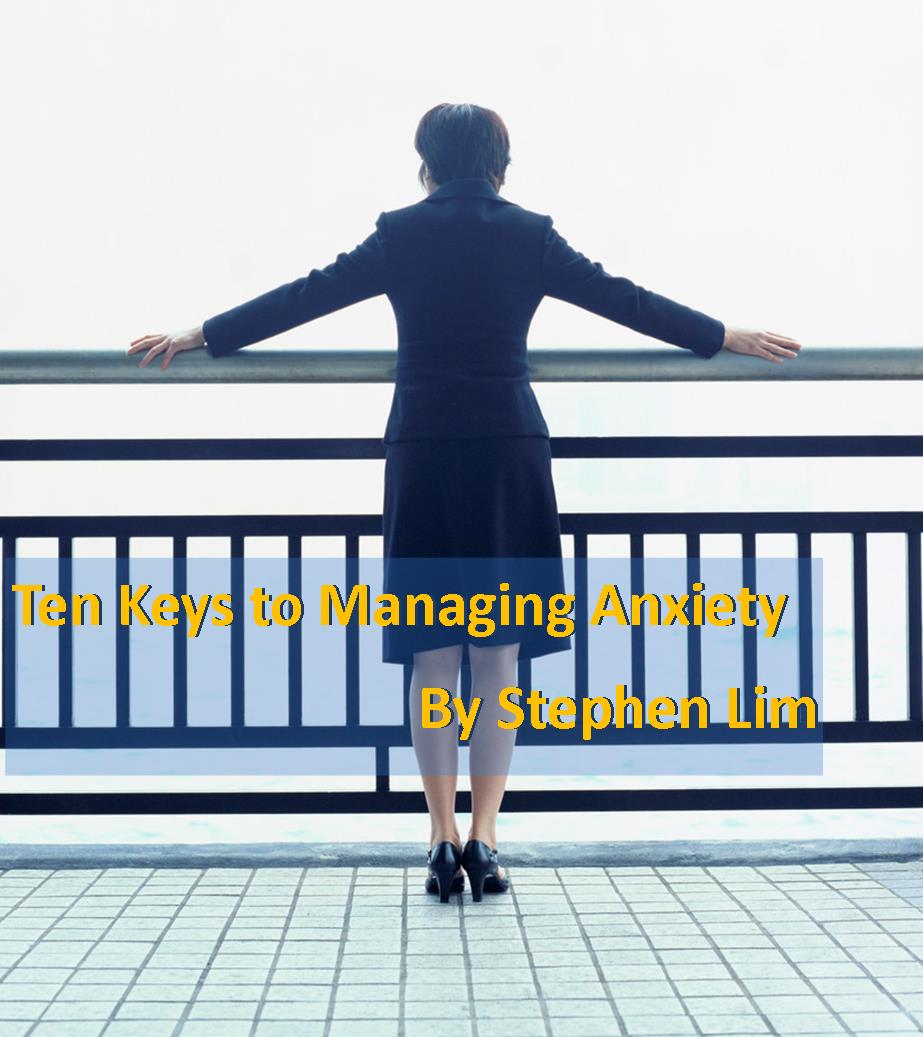Ten Keys to Managing Anxiety

“Will I be laid off?”
“Can my children avoid drugs, violence and promiscuity?”
How will this surgery go? No matter how much we do to ensure positive outcomes, life brims with causes for worry. Anxiety arises whenever we fear possible loss or harm to our person, family, relationships or possessions. If we depend on our own resources, we can’t avoid worry, for no matter how much we have, we never know if it’s enough.
In limited doses anxiety motivates us. The apprehension I feel as I face deadlines focuses my energies, helping me to function at maximum efficiency. Excessive anxiety, however, however, robs us of peace of mind. It reduces our reasoning and learning ability, memory, creativity and productivity. Prolonged anxiety can lead to serious health problems.
How do people keep anxiety at a bearable level? Some avoid sources of anxiety. If meeting people makes us uneasy, we’ll skip it as much as possible. Others try to escape anxiety. Studies show that women tend to cope by overeating, while men favor alcohol and drugs. For many, keeping busy provides relief, yet worry lurks just below the surface.
Instead of relying on inadequate solutions, I have found ten principles to be effective in managing anxiety:
Prevention. We should not allow circumstances to shape our lives if we can do something about them. Instead of worrying about whether our job will become obsolete, for example, we can prepare for other employment options.
People. Talking with others brings our anxieties into the open, where it’s harder for our imagination to magnify them out of proportion. Examined objectively, anxieties look less menacing. When problems merit concern, supportive relationships save us from struggling alone.
Concern for the needs of others helps to take our mind off our own anxieties and put them in perspective. Karl Menninger’s prescription for depression works equally well with anxiety. He advised helping someone with a greater need than ours. Jesus taught, “Love your neighbor as yourself” (Matt 22:39).

At the end of your rope?
Physical Well-being. Physical conditions affect our emotions. When we fail to get adequate rest, nutrition or exercise, we experience low moods and fatigue, intensifying our anxieties; a healthy body, on the other hand, promotes a sense of well-being.
Professional Help. When anxieties persist, we may want to search for deeper causes. Millions suffer from internal conflicts, while others are genetically more prone to worry. For the latter, self-awareness and a sense of humor help. Disease, dietary imbalance or neurological malfunctioning can also contribute to anxiety. Depending on the problem, a counselor, physician or pastor can be helpful.
Category: Living the Faith, Spring 2011


